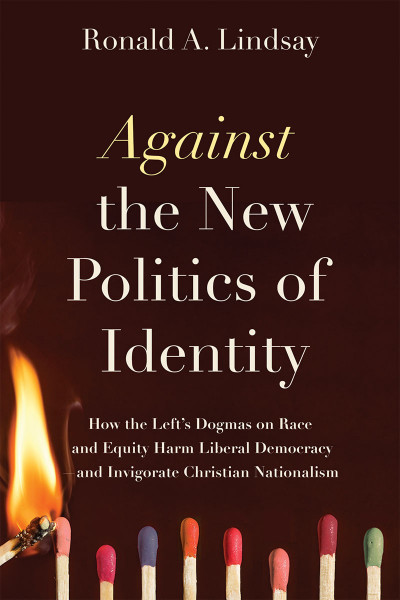A far-reaching cultural transformation is occurring across much of the West that is threatening the very foundations of demacy. Individuals are no longer judged by their deeds, actions, and behavior but rather are defined by their race, ethnicity, and sexual orientation. Driven largely by the political Left, this transformation has led to the wholesale division of individuals into oppressed and oppressor classes. Where the Left once organized around liberal principles to ensure that all groups had an equal seat at the proverbial table, much of the Left today demands not only that those categorized as oppressed receive priority seating, but also that those categorized as oppressor are excluded from the table altogether. Government bodies, corporations, universities, and the mainstream media regularly submit to these illiberal commands and explicitly favor certain identity groups over others in the name of "allyship," "antiracism," or "equity." As philosopher Ronald A. Lindsay argues in
Against the New Politics of Identity, this radical cultural shift by which all policies and practices must be seen through the lens of identity rests on three dogmatic tenets: those who are alleged to be oppressed or marginalized have special insight based on their "lived experience"; racism is embedded in all Western laws, regulations, policies, and institutions; and equity, understood as the elimination of all group disparities in all areas of life, must take precedence over all other criteria, such as individual merit, achievement, and need. Lindsay demonstrates that these tenets are based on a series of fallacies and warns that the push for identity politics on the Left predictably elicits a parallel reaction from the Right, including the Right's own version of identity politics in the form of Christian nationalism. As he makes clear, the symbiotic relationship that has formed between these two political poles risks producing even deeper threats to Enlightenment values and Western demacy. If we are to preserve a liberal demacy in which the rights of individuals are respected, he concludes, the dogmas of identity politics must be challenged and refuted.
Against the New Politics of Identity offers a principled path for doing so.

 Our Live Cams
Our Live Cams




 Reply With Quote
Reply With Quote